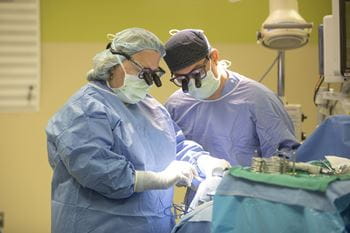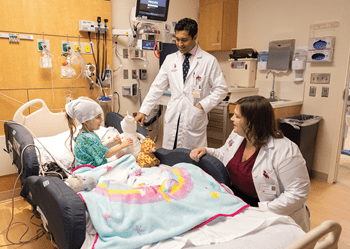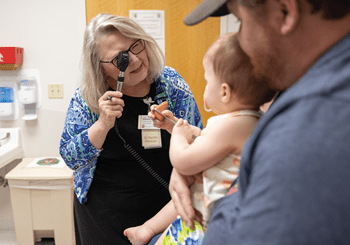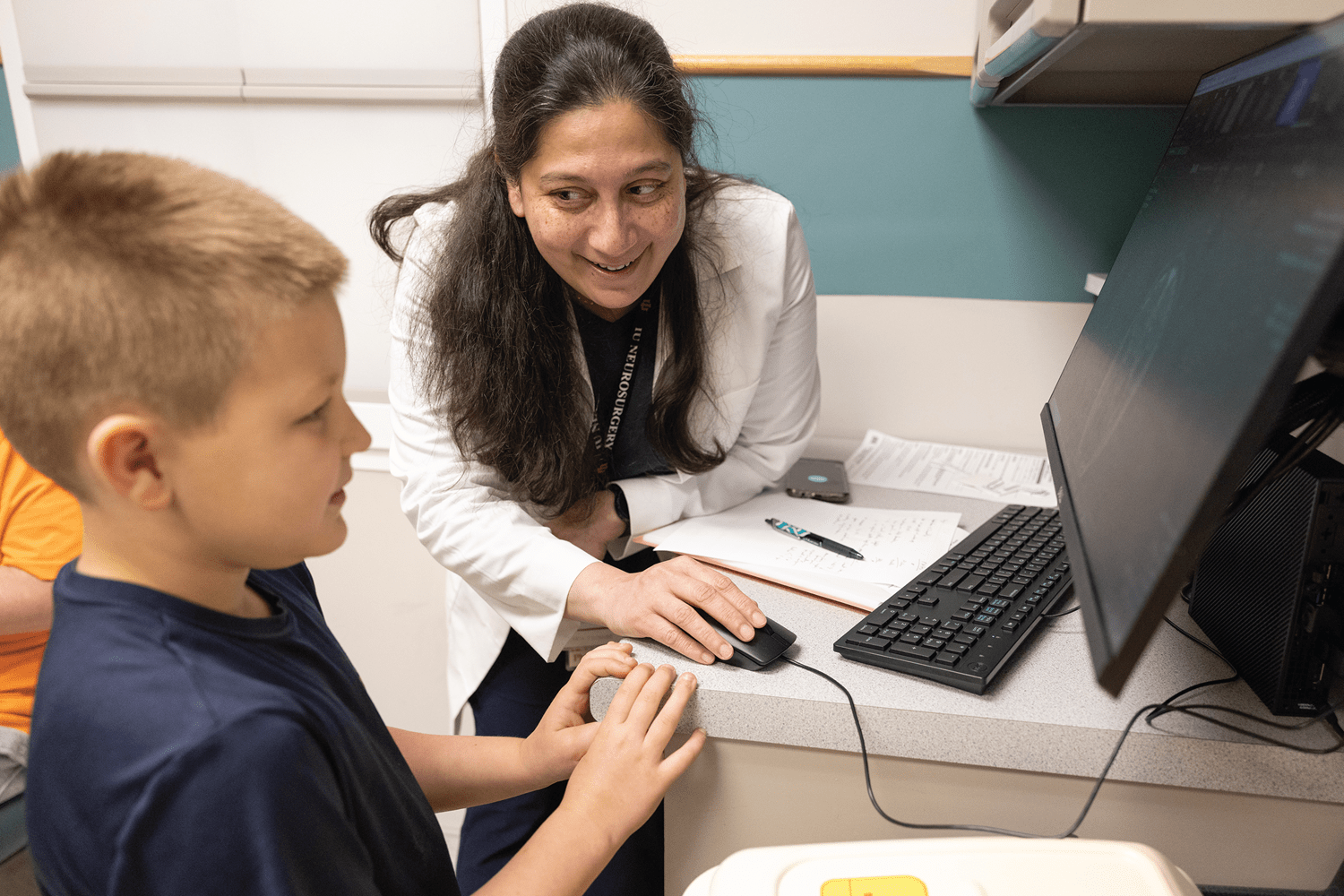 Indiana University School of Medicine pediatric neurosurgeons in the Department of Neurological Surgery treat a full range of complex neurological injuries and disorders, including seizures, skull and spine deformities, pediatric stroke, and benign and malignant tumors. Children are not simply smaller patients but ones with unique conditions and considerations. When they require neurosurgical care, a heightened sense of urgency and importance naturally follows. IU School of Medicine faculty surgeons who specialize in pediatric neurosurgery are highly skilled in complex procedures and provide exceptional care to these patients. The team cares for infants and children of all ages at Riley Hospital for Children at IU Health, one of the nation’s premier children’s hospitals, which is consistently ranked by U.S. News & World Report's Best Hospitals. Riley Hospital for Children is the state’s largest children’s hospital, the only level 1 pediatric trauma center in Indiana and is home to the only comprehensive pediatric surgical epilepsy program. Beyond providing the most advanced care today, pediatric neurosurgeons improve care for the patients of tomorrow by training the next generation of physicians and conducting high-impact research, including testing promising new therapies through clinical research studies. The department offers a one-year clinical fellowship in pediatric neurosurgery and have access to a wide range of pediatric neurosurgical cases in preparation for independent practice or an academic career.
Indiana University School of Medicine pediatric neurosurgeons in the Department of Neurological Surgery treat a full range of complex neurological injuries and disorders, including seizures, skull and spine deformities, pediatric stroke, and benign and malignant tumors. Children are not simply smaller patients but ones with unique conditions and considerations. When they require neurosurgical care, a heightened sense of urgency and importance naturally follows. IU School of Medicine faculty surgeons who specialize in pediatric neurosurgery are highly skilled in complex procedures and provide exceptional care to these patients. The team cares for infants and children of all ages at Riley Hospital for Children at IU Health, one of the nation’s premier children’s hospitals, which is consistently ranked by U.S. News & World Report's Best Hospitals. Riley Hospital for Children is the state’s largest children’s hospital, the only level 1 pediatric trauma center in Indiana and is home to the only comprehensive pediatric surgical epilepsy program. Beyond providing the most advanced care today, pediatric neurosurgeons improve care for the patients of tomorrow by training the next generation of physicians and conducting high-impact research, including testing promising new therapies through clinical research studies. The department offers a one-year clinical fellowship in pediatric neurosurgery and have access to a wide range of pediatric neurosurgical cases in preparation for independent practice or an academic career.
Neurologic Diseases

Pediatric neurosurgeons treat a variety of neurologic disorders in children. They provide diagnostic and therapeutic options for vascular malformations and injuries of the nervous system, including endovascular (less invasive) approaches as well as surgical resection. These rare disorders are managed by a comprehensive team of pediatric providers across the gamut of care including neurologists, and interventional radiologists as well as neurosurgeons. Patients are seen in the neurovascular clinic with these providers. A variety of specialists, including neurosurgeons, plastic surgeons, physical medicine and rehabilitation specialists, occupational and physical therapists come together to provide care for a variety of peripheral nerve problems including injuries to the brachial plexus sustained at birth or from traumatic events, and peripheral nerve tumors. The multidisciplinary approach to neurofibromatosis, an inherited disorder associated with tumors of peripheral nerves is unique in the region and there is significant ongoing funded research in the Department of Pediatrics.
Epilepsy Program
The comprehensive epilepsy program at Riley Hospital for Children under the guidance of pediatric neurosurgeons at IU School of Medicine offers all forms of medical and surgical diagnostics and treatments for epilepsy. For drug-resistant epilepsy, surgery is often a good option, and the department has the capability to perform robot-assisted stereo EEG lead placement, laser interstitial thermal therapy, neuromodulatory procedures, such as insertion of the responsive neurostimulator system (RNS) and vagal nerve stimulators, as well as resective or disconnection surgeries. Riley has the only laser ablation program in the state for children with epilepsy and brain tumors. The pediatric neurosurgery team collaborates with North American centers for research in the connectomics underlying vagus nerve stimulation and the efficacy of laser ablation in epilepsy.
 Movement Disorders
Movement Disorders
The department is a member of the Cerebral Palsy Research Network (CPRN) where they contribute prospective registry data to multi-center trials to study and improve the care of hypertonic patients. Pediatric neurosurgeons provide a baclofen pump program with one of lowest infection rates in country, intraventricular baclofen therapy, deep brain stimulation for dystonia, and selective and non-selective cervical and lumbosacral rhizotomy. The movement disorder program is patient-centric and multidisciplinary.






